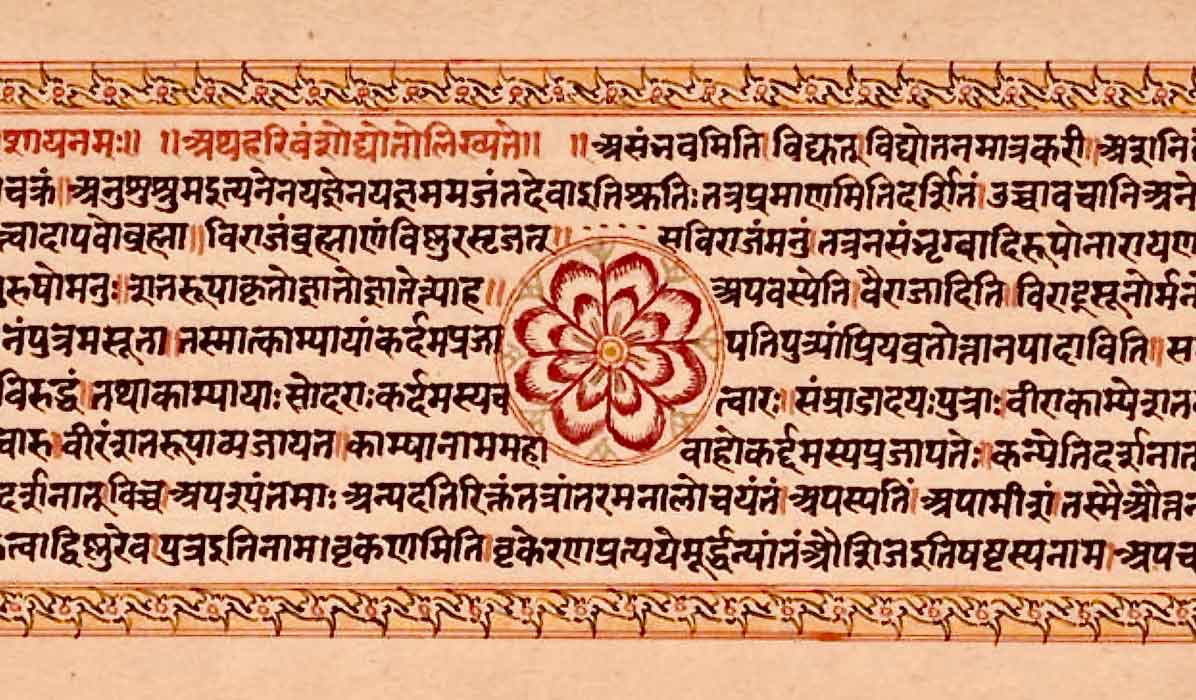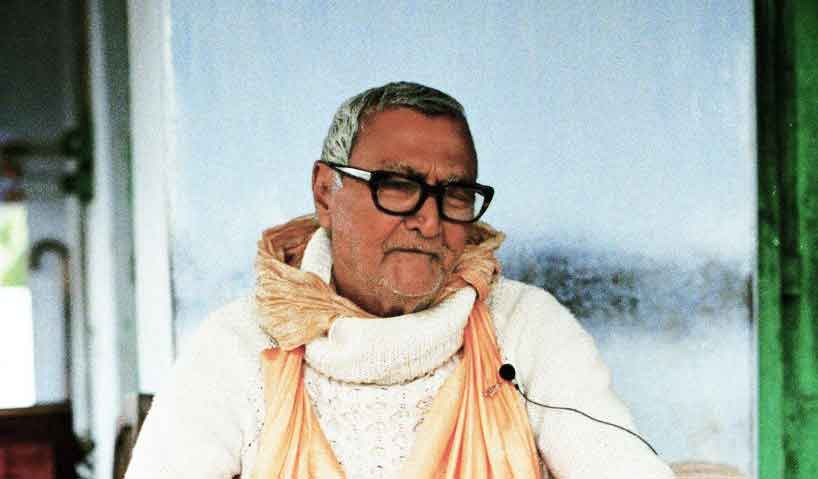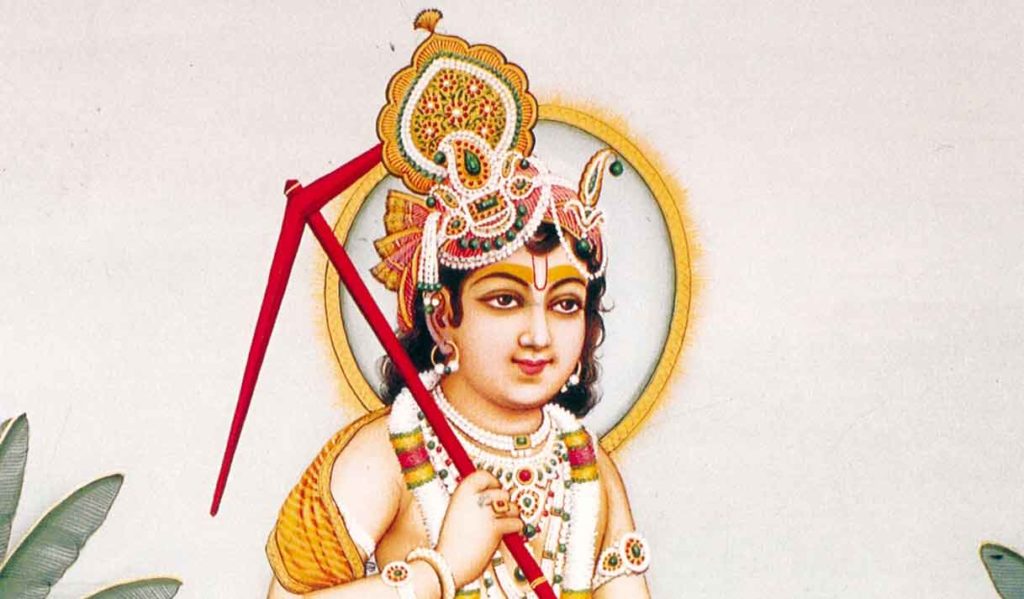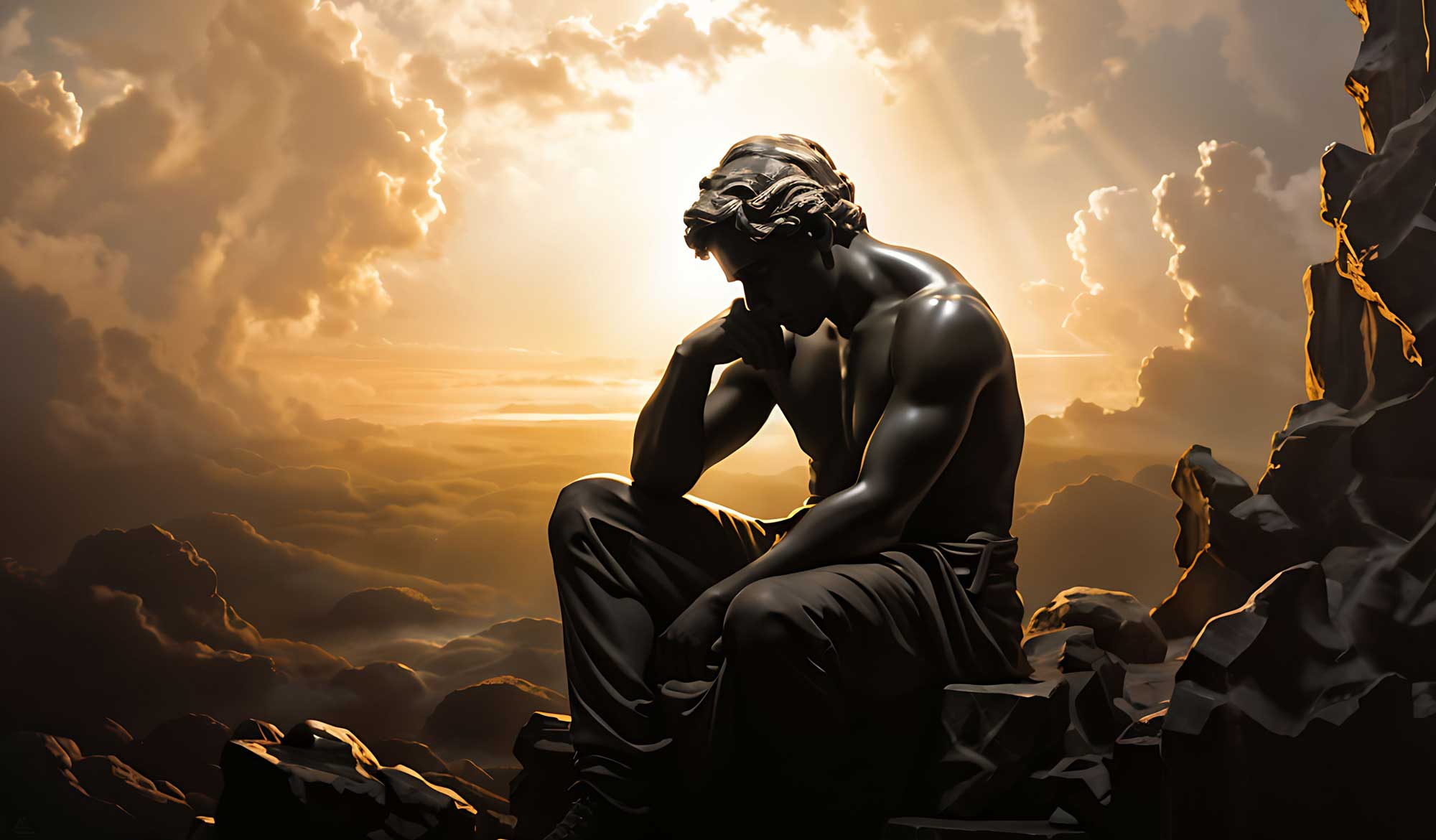Overview
In the following discourse Śrīla Śrīdhara Mahārāja explains that one who is in the service of full-fledged theism, whatever inspiration comes in them, for the service of preaching that truth, that is more valuable than the Upaniṣads, Vedas, and other revealed scripture.
Śrīla Śrīdhara Mahārāja: Some years after our Guru Mahārāja had left, Ananta Vāsudeva Prabhu (the ācārya of the Gauḍīya Mission) called for me and said, “Prabhupāda has done many things which cannot be supported according to the scriptures. Where is your name ‘Śrīdhara’ found in the scripture? Only ten names of sannyāsīs we find – Purī, Giri, Bhāratī etc. – all these are mentioned in the scriptures.”
I told him, “You published a book, Gauḍīya Kaṇṭhahāra before I joined the maṭha, and there, one hundred and eight names of sannyāsīs are mentioned. You have given reference to Ananta-saṁhitā.”
“Oh, that is all false, concoction. We suggested these names and Sachin Paṇḍita composed the śloka and has given this some Sanskrit characteristic. We suggested the name of Ananta-saṁhitā. It is a fictitious book. There is no Ananta-saṁhitā.”
“That does not matter.”
“It is all false, so we can’t follow strictly the principles of Prabhupāda.”
Then I gave him this answer, “In the Vedas and Upaniṣads it is seen that the first consideration is the ṛṣi. What the ṛṣis of the ancient times saw and felt in their hearts, they recorded, and that is Vedas and Upaniṣads. If we consider that the primary conception of full-fledged theism is given in the Śrīmad Bhāgavatam and that It is the natural fruit of the Vedas, Purāṇas etc, then those persons who preach that full-fledged theism, who have found the expression within their heart – anything they add to that is greater śāstra than the Vedas and Upaniṣads. That is more valuable to me than any of the so-called ṛṣis, who felt this Brahman – a hazy conception of the theism. We find in the Bhāgavatam that the Śrutis are repenting and praying for forgiveness to Kṛṣṇa, “We could not express You fully. What we have expressed is going to that hazy conception of Brahman – not Your conception. We could not express Param-Brahma, Svayam-Bhagavān, so we beg Your forgiveness for this.”
The present ācāryas do not have a lesser position than the former ṛṣis – they have a greater position. They have to give to the public a higher conception of theism. We may think of them to be modern, but at the same time if we consider what Mahāprabhu gave and what the Bhāgavatam has given as a more developed condition of theism than what the Upaniṣads and Vedas have given in previous days – if we realise this, than we must give the position of importance to the ācārya of full-fledged theism. Otherwise we are all hypocrites.
If we can think that the teachings of Śrī Caitanyadeva and the full-fledged theism as told by Prabhupāda is the highest, and the Bhāgavata is the highest development of theism, then what Prabhupāda said has got reality – that is true. That cannot but be true. Whatever is felt, any more, any single division – that is generally bona-fide. That is the only truth. I cannot think that the revealed truth means that thousands and thousands of years back it was only revealed to some ṛṣi or so and that it cannot be revealed at present. At any time the revelation may come to support this highest form of theism – whatever the revelation!
Devotee: Vāsudeva Prabhu wanted to show Ananta-saṁhitā was not bona-fide?
Śrīdhara Mahārāja: Yes, that it is an imagined book. He told me that, but I do not know for certain. Still I stood my ground on that fact. There is also the Caitanya Upaniṣad – that may not be found anywhere. Brahma-saṁhitā is also not to be found. Some claim that it was written by Śrī Caitanyadeva. Bhaktivinoda Ṭhākura has written that we do not find any book by Caitanyadeva, but if Brahma-saṁhitā comes from Him, then we are very much proud and satisfied that He has left at least one book. But Jīva Gosvāmī has written that there really was a Brahma-saṁhitā with one hundred chapters and this is one chapter out of that.
I also told this about Jaiva-dharma – Bhaktivinoda Ṭhākura wrote Jaiva-dharma in the style of a novel, as if that is an imaginary conversation amongst imaginary persons – one is asking, another is answering. But I think that this is not fictitious. In some kalpa or other such things really happened. It may not be this kalpa, but there are so many kalpas. There are so many days of Brahmā, and things are repeated with a little modification. When there is any difference or anomaly in the scriptural descriptions, Jīva Gosvāmī has explained this to be kalpa-bheda. When it has come in the consciousness of Bhaktivinoda Ṭhākura, it is not transitory. It is floating – sometimes appearing and sometimes disappearing. It is all eternal truth.
Sanātana Gosvāmī says that when writing this Bṛhad-bhāgavatāmṛtam, “Someone is forcing me to write this. It is not I that is writing. I do not have such audacity that I can enter into the harem of Kṛṣṇa and say that Rukmiṇī is such and such, Satyabhāmā is such and such – what audacity I have to deal with them. Somebody is forcing me to write!” Kavirāja Gosvāmī also says, ei grantha lekhāya more madana-mohana (‘It is Madana-mohana that makes me write this book’). It is all true – cent-percent true.
Suppose something has come from Bhaktivinoda Ṭhākura, Prabhupāda or some respected Vaiṣṇava ācārya – they have got inspiration of giving that sort of thing to the world for the propaganda – it has got its value. It is not unreal, but it has greater value because the ordinary ṛṣis are the appreciators of only two conceptions of theism – the conception of Brahman and Paramātmā. Bhagavān Kṛṣṇa is the highest form of development of theism and who can perceive Him, recognise Him, who can understand that this is the highest conception of theism is to be respected. Any mantram or anything like that which is coming through their inspiration is more valuable. That has got more authenticity. Otherwise, what are they? They are worshippers, they are preachers, they are appreciators, they are devoted to the highest cause – but they have got no foundation? Is it that they have no particular position in that plane, that they cannot feel things of the highest order within their hearts and give it out to the public?
One who is in the service of full-fledged theism, whatever inspiration comes in him, for the service of preaching that truth – that is more valuable than that ordinary Upaniṣad, Veda, and other revealed scripture. I still hold that – it cannot but be so. If you are to accept Svayam-Bhagavān, Akhila-rasāmṛta-mūrti and the full-fledged theism of Bhāgavatam, then those that are earnestly, wholeheartedly trying to serve and preaching that truth, whatever inspiration comes from within, that cannot but be the truth. What we find created and given to us by the present authentic ācārya has got infinitely more value than those which were previously seen by the ṛṣis. Otherwise we cannot say that this is full-fledged theism. Those that can appreciate this highest form of theism, their position is nothing? Their position is not serious? If we shrink to give that sort of respectable position to the present ācārya, if we cannot give such a position to the espouser of this highest form of theism, then that conviction is to be doubted.
Related Articles
- 📖 When Wise Men Speak Wise Men Listen by Swami B.G. Narasiṅgha Mahārāja (Book)
- Greater Than the Upaniṣads and the Vedas by Śrīla Bhakti Rakṣaka Śrīdhara Deva Gosvāmī
- Religiosity – Real and Apparent by Śrīla A.C. Bhaktivedānta Swami Prabhupāda
- Kṛṣṇa – The Supreme Vedāntist by Śrīla A.C. Bhaktivedānta Swami Prabhupāda
- Rational Vedānta by Śrīla Bhakti Gaurava Narasiṅgha Mahārāja
- Real Religion is not Man-made by Śrīla Bhakti Gaurava Narasiṅgha Mahārāja
- More on ‘Real Religion is Not Man Made’ by Śrīla Bhakti Gaurava Narasiṅgha Mahārāja
- More on Christianity: Only Kṛṣṇa Consciousness Can Enhance Kṛṣṇa Consciousness by Śrīla Bhakti Gaurava Narasiṅgha Mahārāja
- Jesus as a Perfect Christian by Śrīla Bhakti Gaurava Narasiṅgha Mahārāja
- Swastika and Cross by Śrīla Bhakti Gaurava Narasiṅgha Mahārāja
- Star of David or Star of Goloka? by Śrīla Bhakti Gaurava Narasiṅgha Mahārāja
- Does God Exist? by Śrīla Bhakti Gaurava Narasiṅgha Mahārāja
- Tad Viṣṇoḥ Paramaṁ Padaṁ by Śrīla Bhakti Gaurava Narasiṅgha Mahārāja
- Have the Vedas Advanced Civilization? by Śrīla Bhakti Gaurava Narasiṅgha Mahārāja
- The Position of The Bhāgavata Amongst Religious Scriptures by Śrīla Bhakti Gaurava Narasiṅgha Mahārāja
- Avatāras in Every Species by Śrīla Bhakti Gaurava Narasiṅgha Mahārāja
- The History of the Bhagavad-gītā by Swami B.V. Giri
- Jesus in the Vedas by Swami B.V. Giri
- The Great Flood – Are Manu and Noah the Same Person? by Kalki Dāsa
- Zarathustra and The De-evolution of Theism by Kalki Dāsa
Further Reading
- Buddha-Gayā by Śrīla Bhaktivinoda Ṭhākura
- ‘Hindu’ by Śrīla Bhaktivinoda Ṭhākura
- Darśana-Śāstra (Philosophical Treatise) by Śrīla Bhaktivinoda Ṭhākura
- Sukhera Viṣaya (A Matter of Happiness) by Śrīla Bhaktivinoda Ṭhākura
- Śrī-Mūrti-sevā o Pautalikatā (Deity Worship and Idolatry) by Śrīla Bhaktivinoda Ṭhākura
- The Hindu Idols by Śrīla Bhaktivinoda Ṭhākura
- On Durga Siva and Kali in Their Exoteric Aspects: A Criticism on Max Muller by Śrīla Bhaktivinoda Ṭhākura
- Vedānta Darśana (The Vedānta Philosophy) by Śrīla Bhaktivinoda Ṭhākura
- The Bhagavat – It’s Philosophy It’s Ethics and It’s Theology by Śrīla Bhaktivinoda Ṭhākura
Prema Dhāma Deva Stotram with the Narasiṅgha Sevaka Commentary – Verses 61-65
In verses 61 to 65 of 'Prema Dhāma Deva Stotram', Śrīla Śrīdhara Mahārāja narrates the pastime of Śrī Caitanya at Caṭaka Parvata In Purī and explains how the scriptures produced by Brahmā and Śiva are ultimately searching for the personality of Mahāprabhu who is merciful too all jīvas, no matter what their social position.
Prabhupāda Śrīla Sarasvatī Ṭhākura’s Visit to Ayodhyā
With the forthcoming observance of Śrī Rāma Navamī, we present 'Prabhupāda Śrīla Sarasvatī Ṭhākura’s Visit to Ayodhyā' written by Śrīla Bhaktisiddhānta Sarasvatī Ṭhākura Prabhupāda from The Gaudīyā magazine, Vol 3. Issue 21/ In December 1924, after visiting Benares and Prāyāga, Sarasvatī Ṭhākura visited the birth-site of Śrī Rāmācandra in Ayodhyā.
Śaraṇāgati – The Only Path to Auspiciousness
In this article, 'Śaraṇāgati - The Only Path to Auspiciousness', Dhīra Lalitā Dāsī analyses the process of śaraṇāgati (surrender) beginning with śraddhā (faith). She also discusses the role of śāstra and the Vaiṣṇava in connection with surrender.
Ātma Samīkṣā – The Value of Introspection
In this article, "Ātma Samīkṣā – The Value of Introspection" Kalki Dāsa highlights the importance of introspection in the life of a devotee and especially in relation to the worldly environment that surrounds us. He also explains how transcendental sound influences our capacity to introspect.
Prema Dhāma Deva Stotram with the Narasiṅgha Sevaka Commentary – Verses 61-65
In verses 61 to 65 of 'Prema Dhāma Deva Stotram', Śrīla Śrīdhara Mahārāja narrates the pastime of Śrī Caitanya at Caṭaka Parvata In Purī and explains how the scriptures produced by Brahmā and Śiva are ultimately searching for the personality of Mahāprabhu who is merciful too all jīvas, no matter what their social position.
Prabhupāda Śrīla Sarasvatī Ṭhākura’s Visit to Ayodhyā
With the forthcoming observance of Śrī Rāma Navamī, we present 'Prabhupāda Śrīla Sarasvatī Ṭhākura’s Visit to Ayodhyā' written by Śrīla Bhaktisiddhānta Sarasvatī Ṭhākura Prabhupāda from The Gaudīyā magazine, Vol 3. Issue 21/ In December 1924, after visiting Benares and Prāyāga, Sarasvatī Ṭhākura visited the birth-site of Śrī Rāmācandra in Ayodhyā.
Śaraṇāgati – The Only Path to Auspiciousness
In this article, 'Śaraṇāgati - The Only Path to Auspiciousness', Dhīra Lalitā Dāsī analyses the process of śaraṇāgati (surrender) beginning with śraddhā (faith). She also discusses the role of śāstra and the Vaiṣṇava in connection with surrender.
Ātma Samīkṣā – The Value of Introspection
In this article, "Ātma Samīkṣā – The Value of Introspection" Kalki Dāsa highlights the importance of introspection in the life of a devotee and especially in relation to the worldly environment that surrounds us. He also explains how transcendental sound influences our capacity to introspect.








